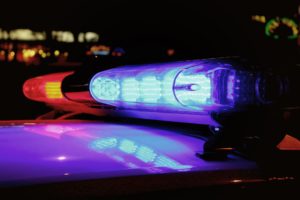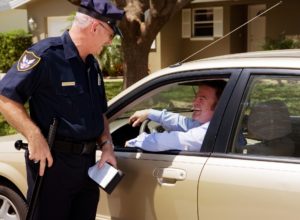If you carry all day every day (like you should) there is a high probability at some point you will have interaction with law enforcement. Whether that means getting pulled over or following a critical incident you may be involved in. Understanding how to act is not just important from the legal perspective, it may save your life. Since this is a fairly in-depth topic, I am going to break it up into two articles starting with the traffic stop.
Before I get into the specifics of what I recommend you do and say, I encourage you to read and understand your state and local laws regarding the topic. This is so you don’t get into hot water with the law. Some states require CCW holders to disclose they have a permit/gun to officers upon contact. Also consider that my advice and perspective is primarily coming from the law enforcement vantage point because that is my background and current secondary occupation. Additionally, I too have been pulled over on occasion and this process has always worked very well.
Upon seeing those blue or red lights behind you, carefully signal and bring your vehicle to a complete stop in a safe area as far out of traffic as reasonably possible. This allows the officer to park at a safe distance behind you and also partially block your vehicle from rearward approaching vehicles.
If you are not in a safe area to a stop, simply put on your turn signal, reduce your speed, and find a close by location you can pull into or safely stop at. The officer will know you intend to stop. Place your vehicle in park (or in neutral with emergency break activated for manual transmission). I always get the suspicion people may be up to no good if I see brake lights upon approach to their vehicle. If it is dark outside, do the officer the courteously of turning on your interior dome light so they can better see into your vehicle. Roll down your driver and passenger side windows. Depending on protocol, some officers approach from the driver’s side, some from the passenger side, and sometimes there is one on each side.
After that I highly suggest not doing any unnecessary movement like reaching for paperwork or digging around in your center console. When I stop a vehicle and I observe the driver reaching across the seat, digging in a console, or reaching to the backseat I get concerned they are up to something mischievous. I think it also may be good habit to place your hands on the steering wheel so there is no question that you are a law abiding citizen with good intentions. None of this is required but it certainly shows your respect and sets the officers mind at ease.
Keep in mind bad things happen to officers on traffic stops daily, they are trained to be prepared for anything. Please appreciate some level of suspicion or coldness on their part. There’s no such thing as a “routine” traffic stop for law enforcement. I do not suggest opening your door or getting out of the vehicle ever. That is a red flag for the officer and also puts you at risk for injury from other traffic. If the stop happens at night, be prepared for blinding spot lights and take down lights shining in your mirrors. This is obviously done for officer safety so they can better observe your movements.
 Upon initial contact with the officer, I suggest you listen rather than starting the conversation with “why did you pull me over” or “what did I do wrong”. Likely the officer will provide some type of introduction (name and agency) followed by your suspected violation. Then a request for documents such as a driver’s license, registration and maybe proof of insurance will be made. This is a good time to let the officer know you have a handgun permit are carrying a concealed firearm. “Sir/Ma’am, just to let you know before I reach for anything, I have a permit. I am carrying my pistol on my right hip”.
Upon initial contact with the officer, I suggest you listen rather than starting the conversation with “why did you pull me over” or “what did I do wrong”. Likely the officer will provide some type of introduction (name and agency) followed by your suspected violation. Then a request for documents such as a driver’s license, registration and maybe proof of insurance will be made. This is a good time to let the officer know you have a handgun permit are carrying a concealed firearm. “Sir/Ma’am, just to let you know before I reach for anything, I have a permit. I am carrying my pistol on my right hip”.
Your response may prompt the officer to ask for the permit. He may ask more questions as to where exactly your gun is and if there are others. As a courtesy, disclose even though it may not be required in your state. In some cases the officer may already know you have a CCW permit. They may get this information on police car mobile data terminals or through a dispatch center. Or he was already looking at the abundance of Glock, Sig, NRA, “let god sort em out” stickers on the back of your car. Bottom line, you don’t want the officer to find out you have a gun present when you open up your glove box. Don’t surprise him when you reach for your registration and he sees a full size chrome plated .357 magnum sitting there…
In most occasions the officer will thank you for letting him know. Next he will proceed with the rest of the stop protocol. At most, from my experience, the officer may ask some follow up questions and give you some specific instructions.
Aside from the concealed carry portion of the traffic stop on your part, a pleasant attitude, acknowledgment of your violation (if known), appropriate use of the words “sir”, “ma’am”, “officer” go a long way. Understand they have a job to do and your professional/courteous demeanor will likely work in your favor. (See Part 2 on our blog for the rest of the story.)
Did you find this article useful? Have you ever been in a situation like this? If so tell us about it. If not, do you see the benefit of dealing with a law enforcement officer in this manner? Do you have any other comments you’d like to share about this topic? Share your thoughts below.
